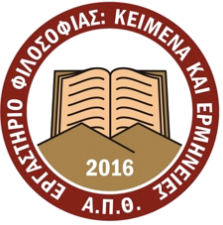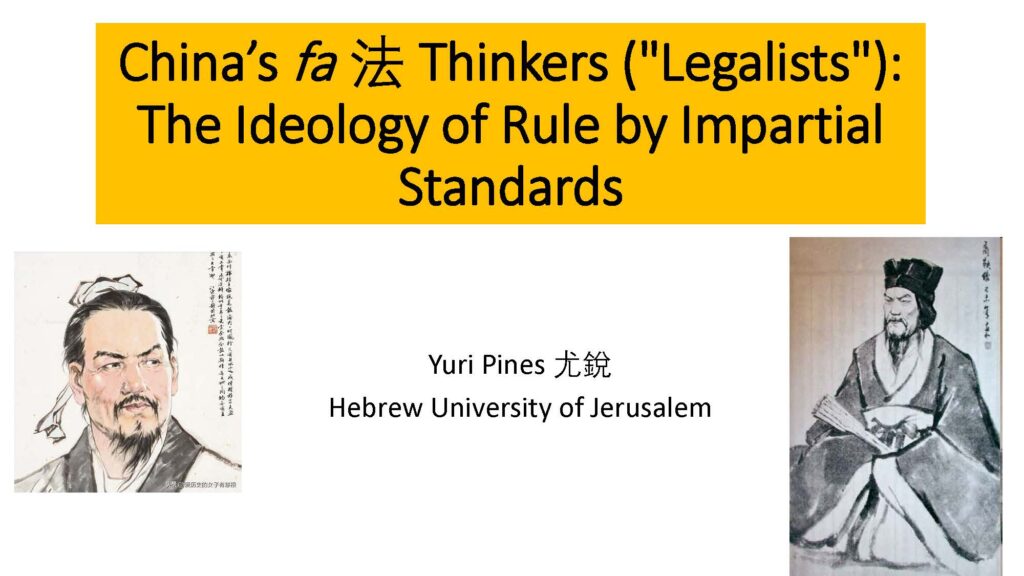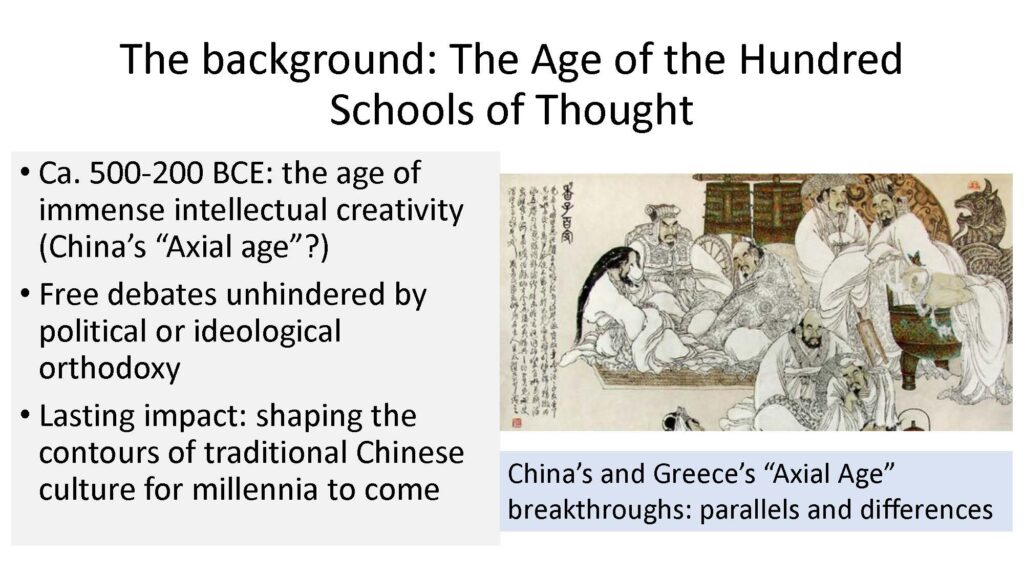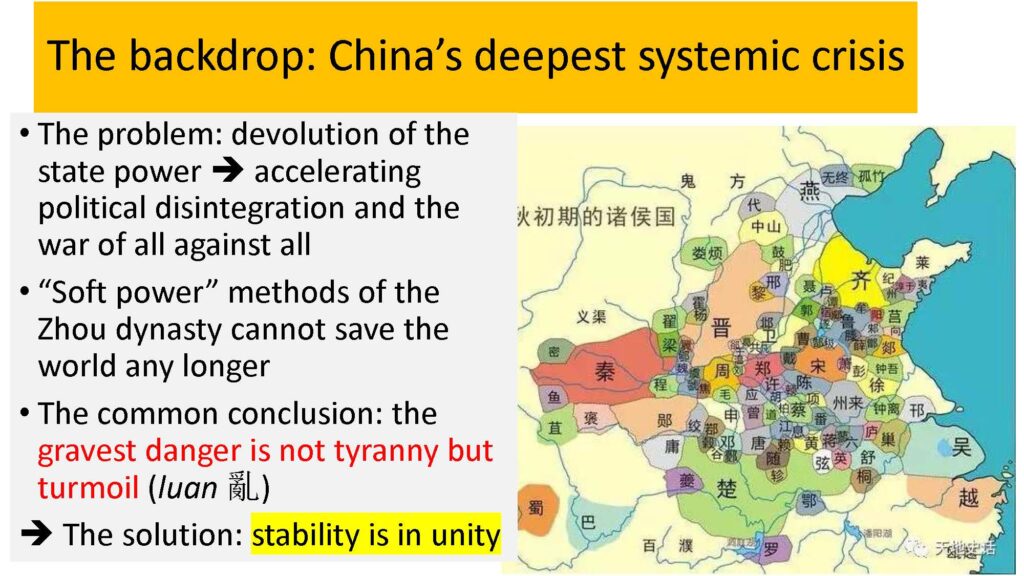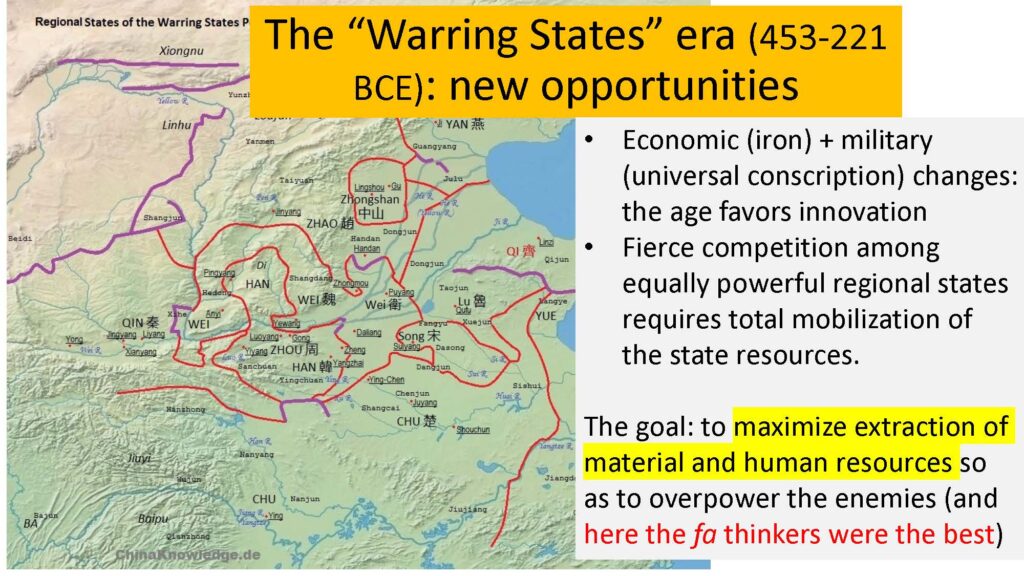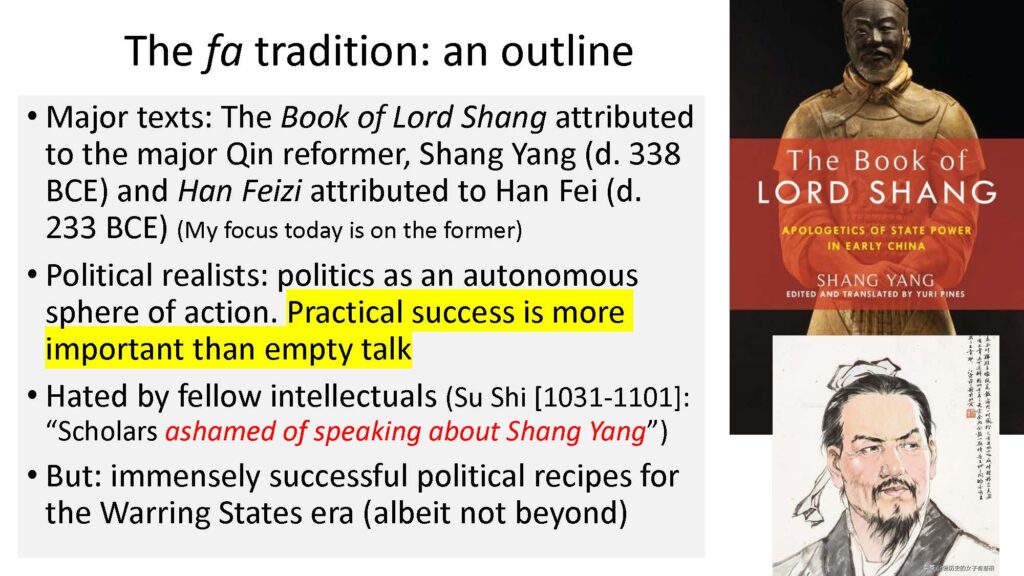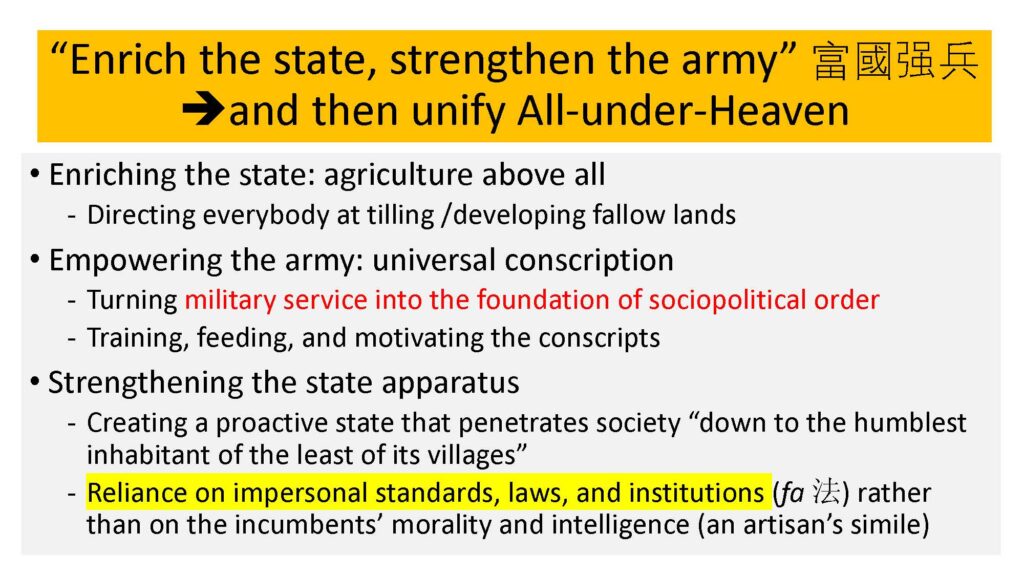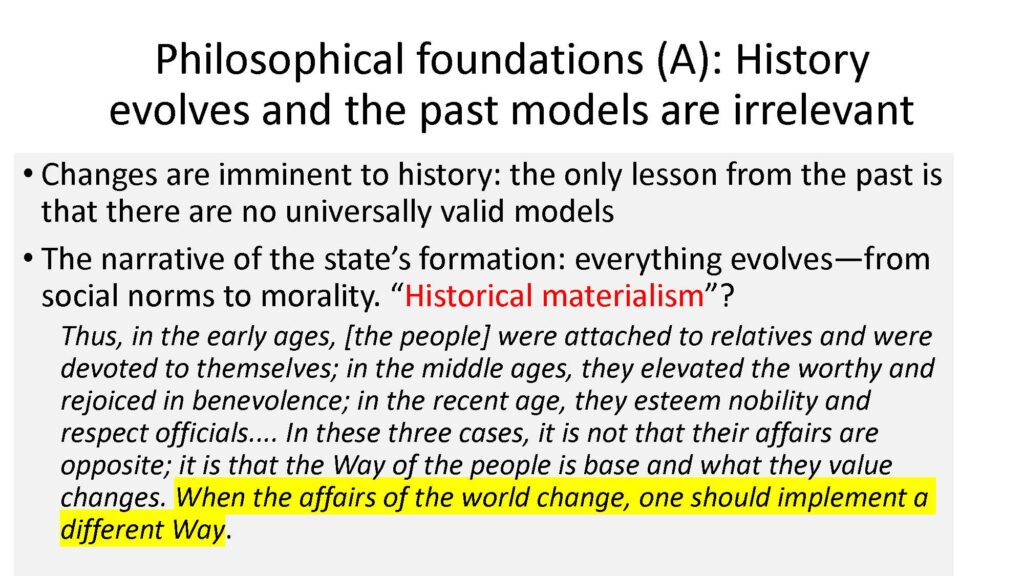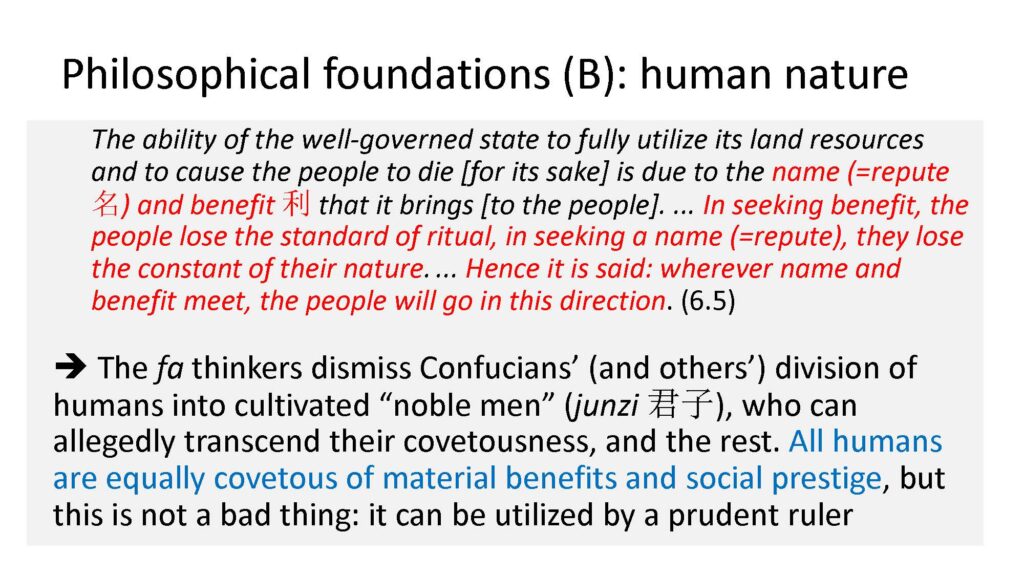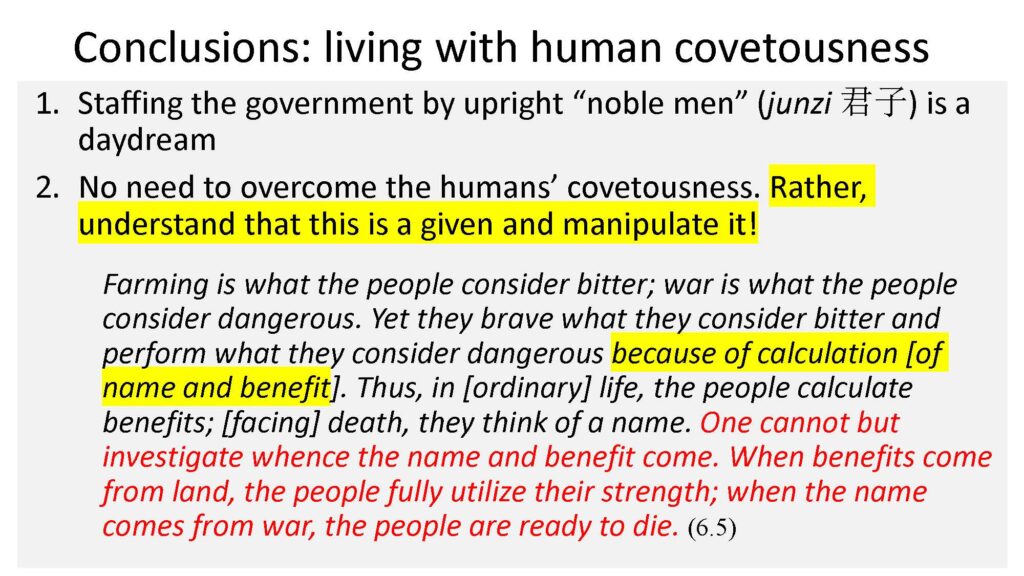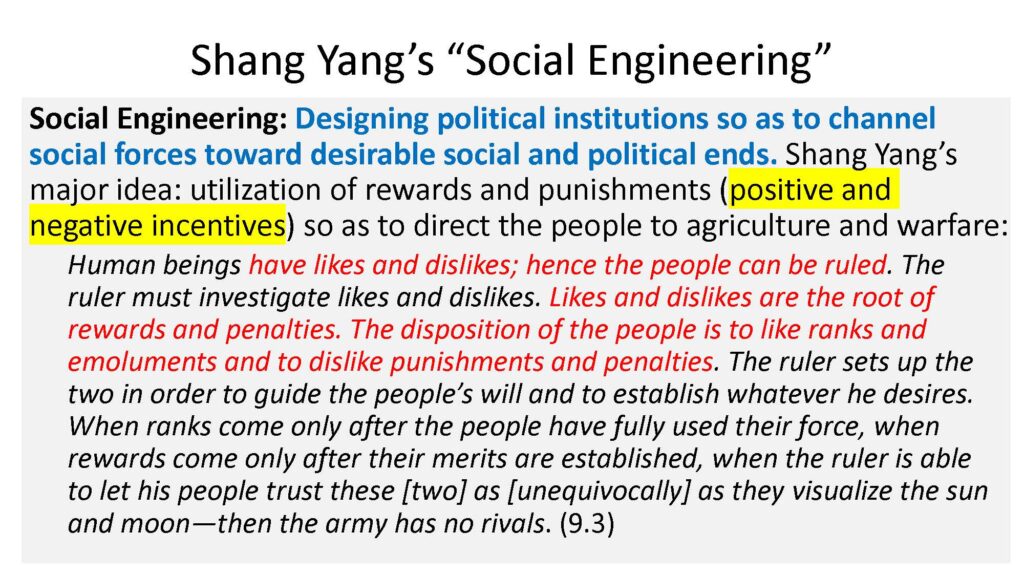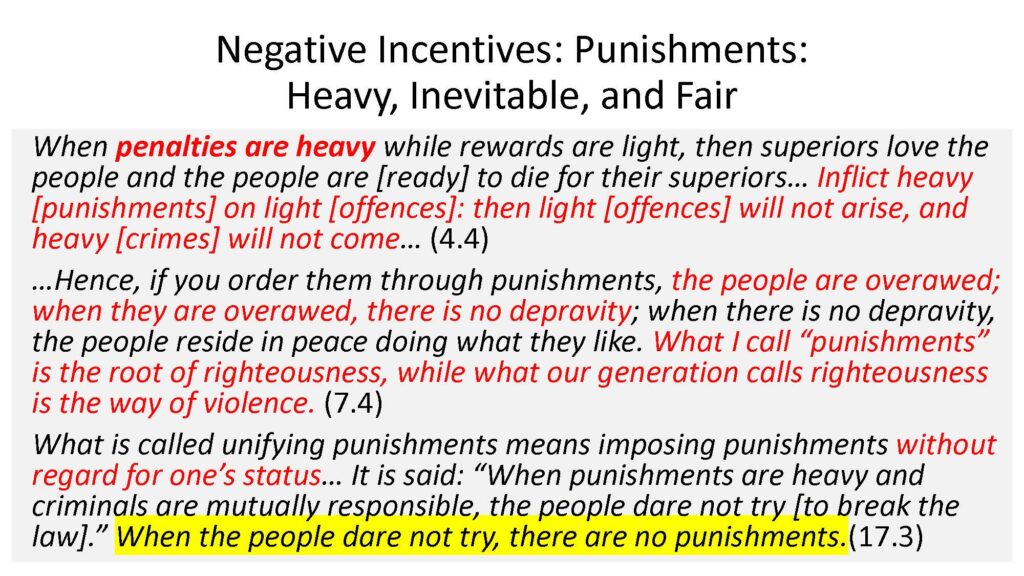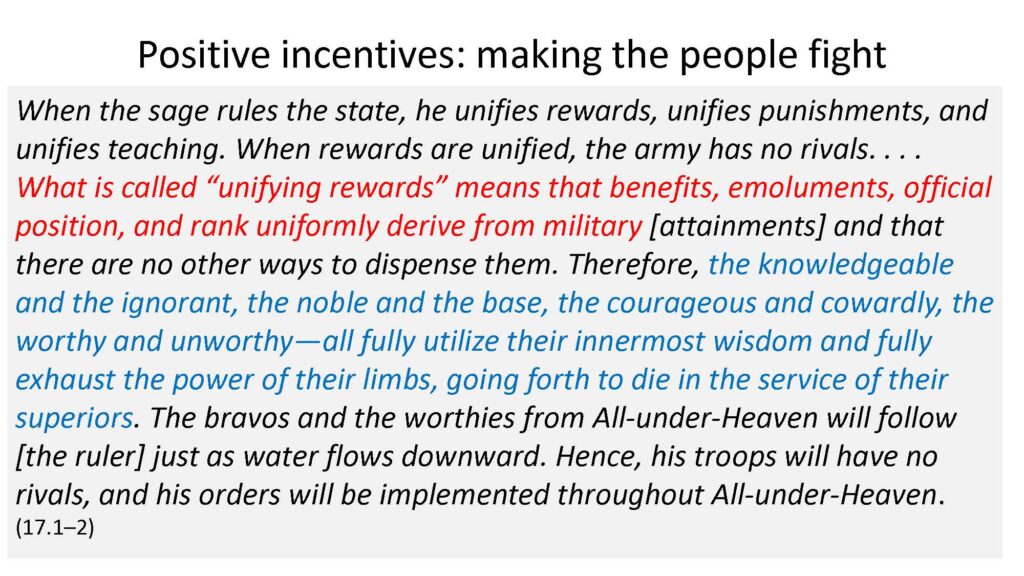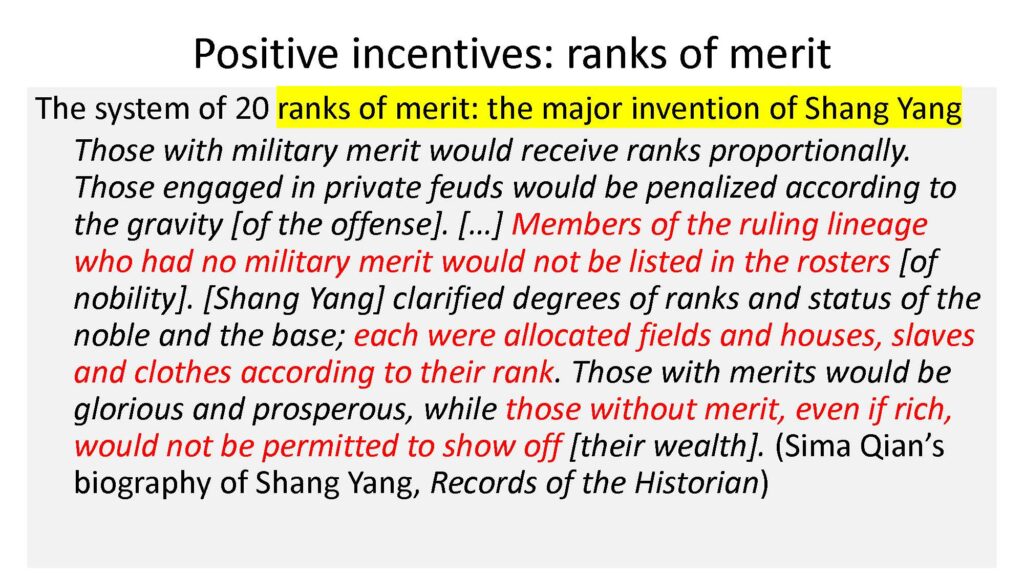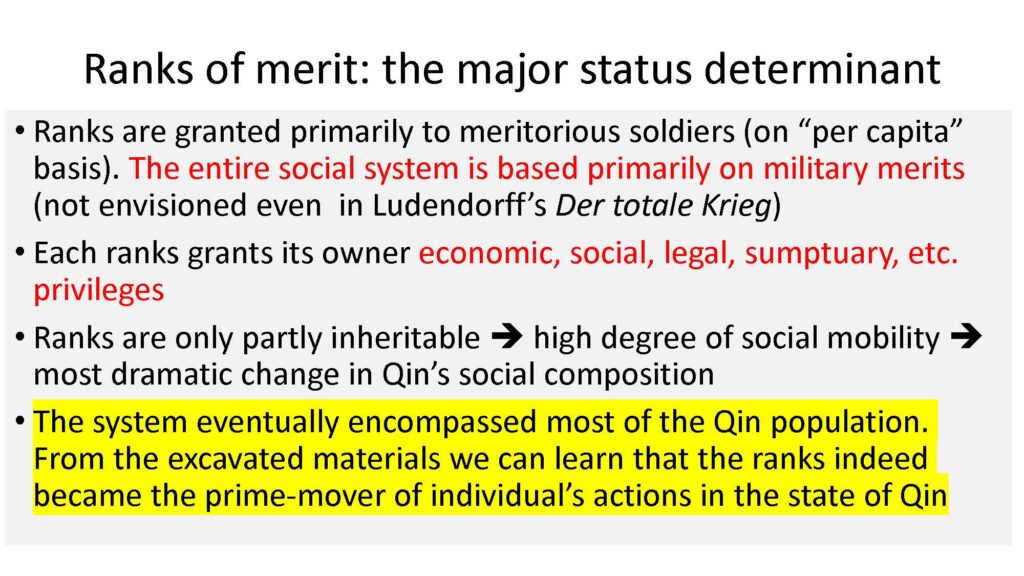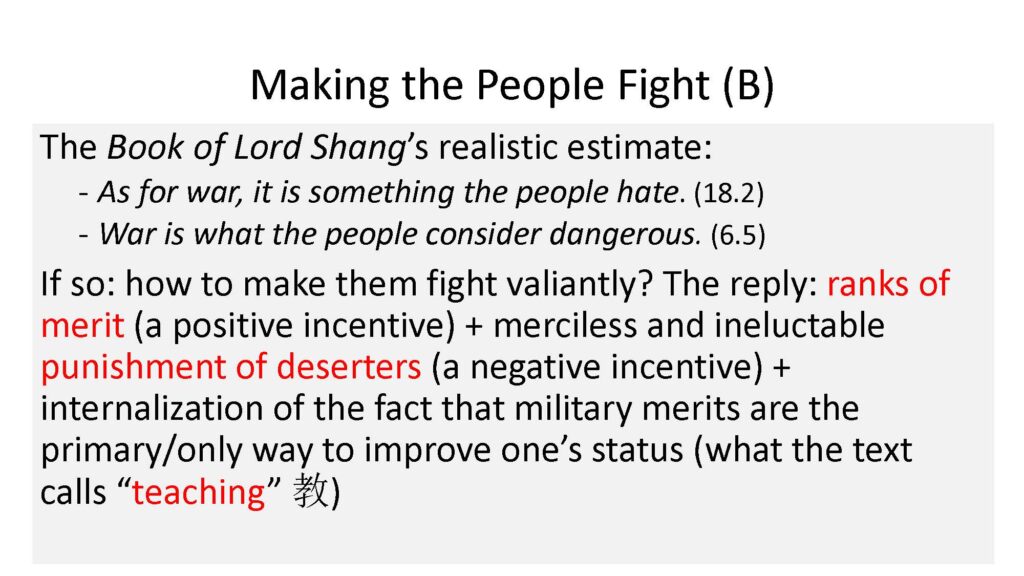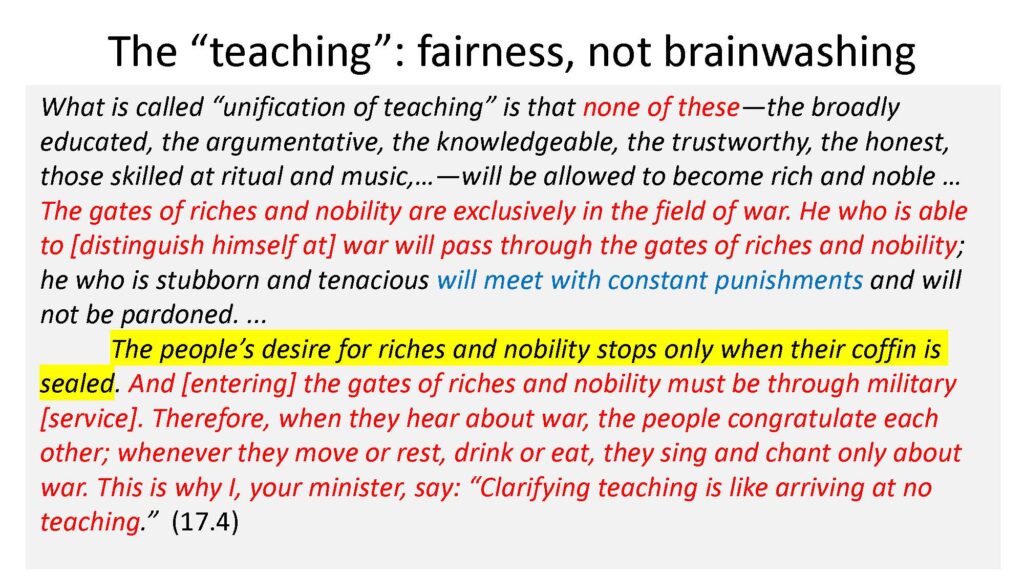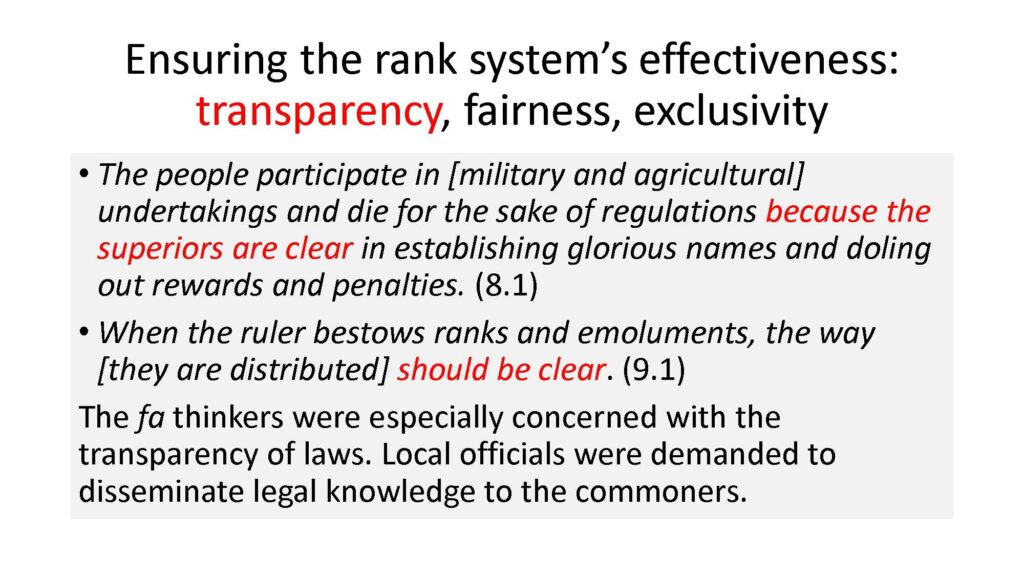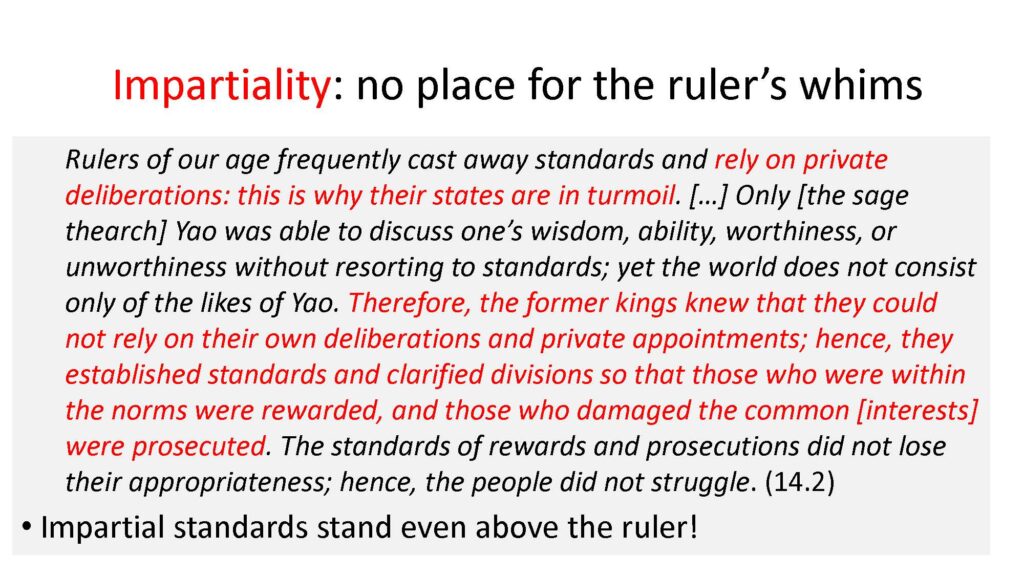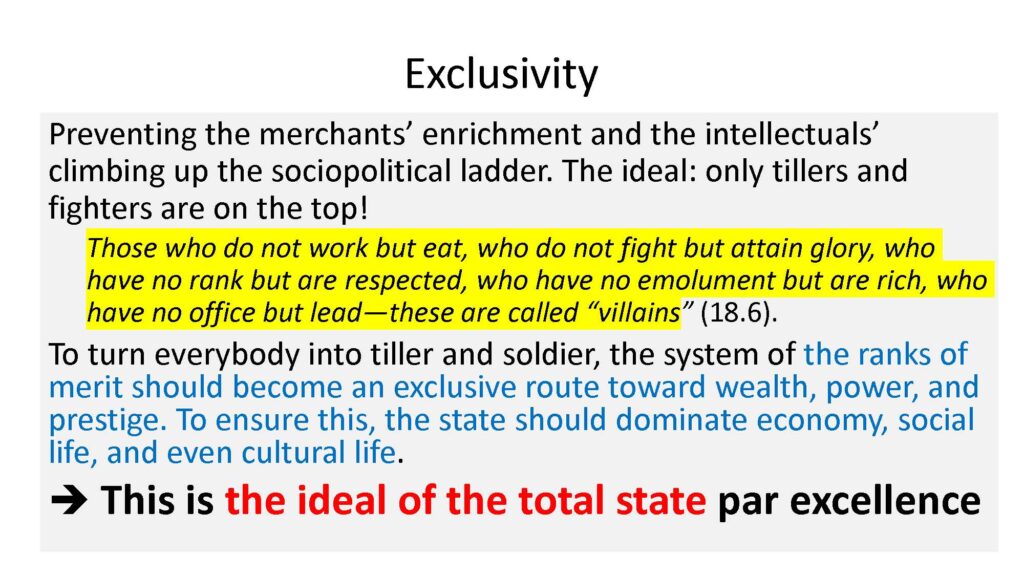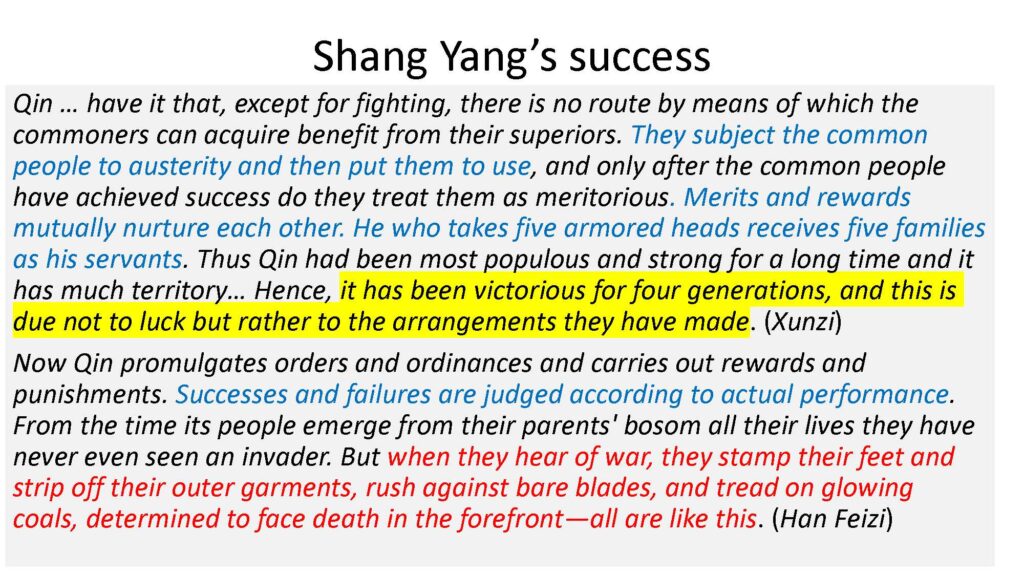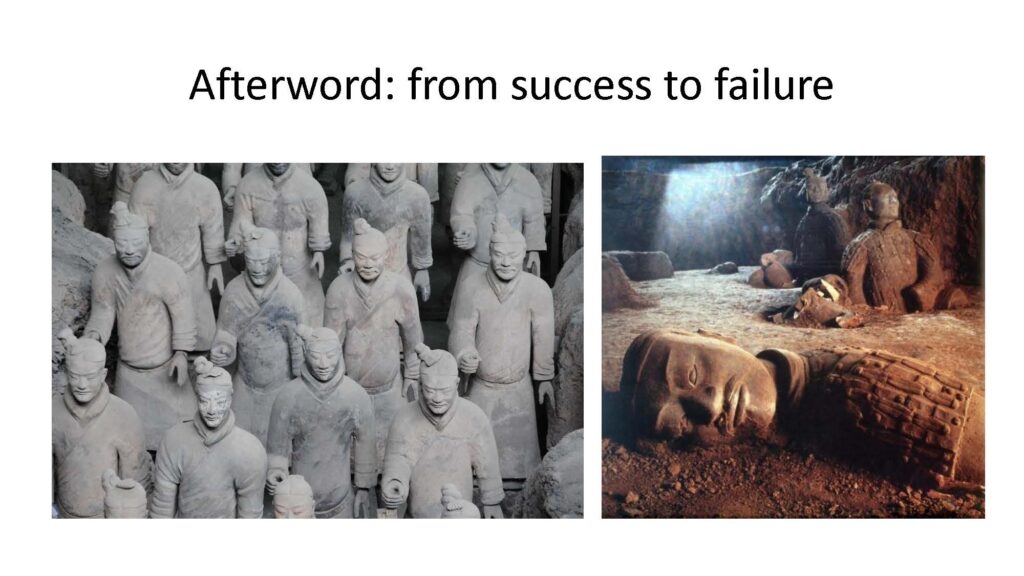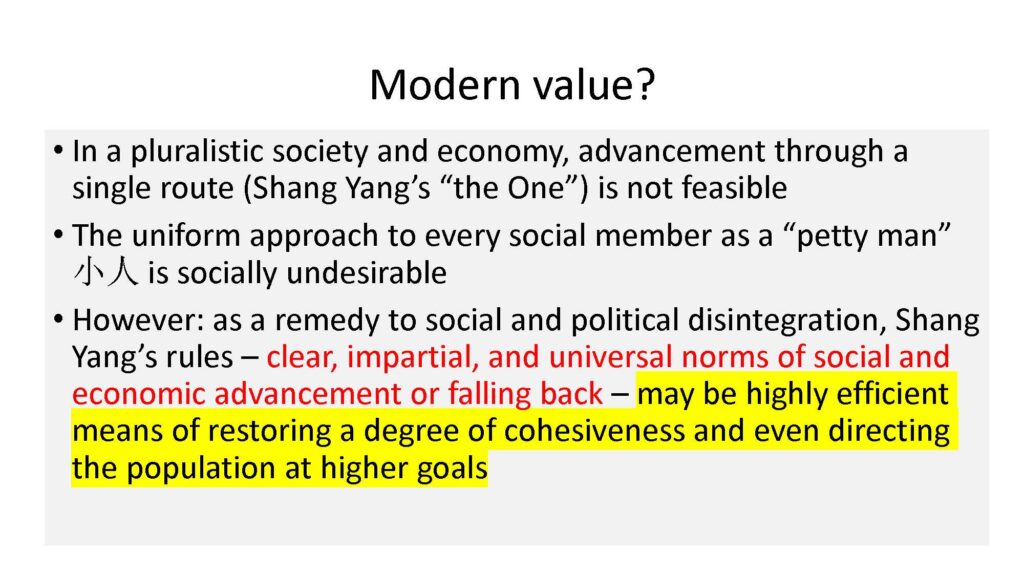Lectures-publications

China’s fa thinkers (“Legalists”): the ideology of rule by impartial standards
Yuri Pines (Hebrew University of Jerusalem)
Abstract
Legalism is a popular —albeit quite inaccurate— designation of an intellectual current that gained considerable popularity in the latter half of the Warring States period (Zhanguo, 453–221 BCE). Legalists were political realists who sought to attain a “rich state and a powerful army” and to ensure domestic stability in an age marked by intense inter- and intra-state competition. They believed that human beings —commoners and elites alike— will forever remain selfish and covetous of riches and fame, and one should not expect them to behave morally. Rather, a viable sociopolitical system should allow individuals to pursue their selfish interests exclusively in ways that benefit the state, viz. agriculture and warfare. Parallel to this, a proper administrative system should allow officials to benefit from ranks and emoluments, but also prevent them from subverting the ruler’s power. Both systems are unconcerned with individual morality of the rulers and the ruled; rather they should be based on impersonal norms and standards: laws, administrative regulations, clearly defined rules of promotion and demotion, and the like.
Legalist thinkers contributed greatly to the formation of China’s empire both on the theoretical level and as political practitioners; and many of their ideas continued to be employed throughout China’s history. However, in a pluralistic society and economy, advancement through a single route (Shang Yang’s “the One”) is not feasible; besides, the uniform approach to every social member as a “petty man” (小人) is socially undesirable. On the other hand, as a remedy to social and political disintegration, Shang Yang’s rules —clear, impartial, and universal norms of social and economic advancement or falling back— may be highly efficient means of restoring a degree of cohesiveness and even directing the population at higher goals.
Speaker
Yuri Pines is a well-known sinologist and the Michael W. Lipson Professor of Chinese Studies at the Hebrew University in Jerusalem. His primary research interests include political thought and political culture of early China; early Chinese historiography; analyzing strengths and weaknesses of Chinese empire from a comparative perspective; sociopolitical history of early China.
